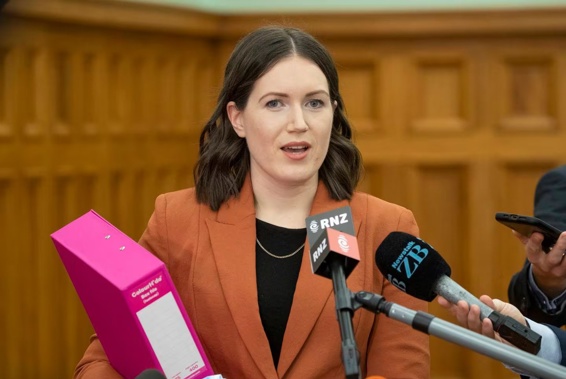
Humanitarian charity Tearfund is calling on the Minister of Workplace Relations to get the ball rolling again on modern slavery legislation.
Under the previous Labour government, plans were made to introduce new laws that would require organisations with over $20 million in annual revenue to publicly report on what they were doing to address the risk of exploitation in their operations and supply chains.
The changes were slated to be made by the end of 2023 – but after Labour were ousted in October, the plan stalled, and new Minister of Workplace Relations, ACT’s Brooke van Velden, hasn’t committed to taking it any further.
Tearfund spokesperson Sharon Walls says the new Government needs to get it moving again.
“We are wanting to … encourage people to remind the Government that this is something Kiwis want, and they want to know about what's in our stuff and in the things that we're purchasing,” she told Newstalk ZB on Good Friday.
“[Kiwis can] send a message to the Minister of Workplace Relations, Brooke Van Velden, and say, ‘hey, what's happened to our legislation here? We need to do something about it.' Kiwis want to know.”
Earlier this week, Tearfund released its Chocolate Scorecard, which it hopes will help Kiwis make more ethical choices about the chocolate they consume this Easter.
New Zealand chocolatier Whittaker’s ranked sixth in the world, with competitor Mondelez, owner of Cadbury, coming in 25th. Mars Wrigley, maker of M&Ms, came in fifth and boutique chocolate brand Tony’s Chocolonely topped the rankings.
Walls says the scorecard aims to expose some of the dodgy activity in chocolate companies’ supply chains.
“We know that Kiwis really care about what they're purchasing and having some transparency around it. New Zealand does lag a little bit behind other OECD countries – Australia, the UK, the US – in measuring lead, and it’s the same with the chocolate and the cocoa that is being purchased.
“These other countries actually have scrutiny on a legislative level about what's happening in the cocoa supply chain. Tearfund is really concerned about the pointy end of our chocolate, about who's picking it.
“Primarily it comes from West Africa, Cote d'Ivoire and Ghana. And there are kids who are working in the cocoa plantations instead of going to school; they're working in the supply chain so that we can purchase chocolate. So we’re really motivated to expose some of that and help Kiwis make wise choices about the chocolate they're purchasing.”
Walls says consumers in Aotearoa have far more influence on chocolate manufacturers than they might think.
“Sometimes we think, ‘We’re a little country on the end of the world – what can we contribute?’ But New Zealanders are the biggest consumers of chocolate in the world, 4.8kg each per year.
“We think we're small, but actually our individual choice makes a difference. So that's what we are encouraging Kiwis about.”
Take your Radio, Podcasts and Music with you









